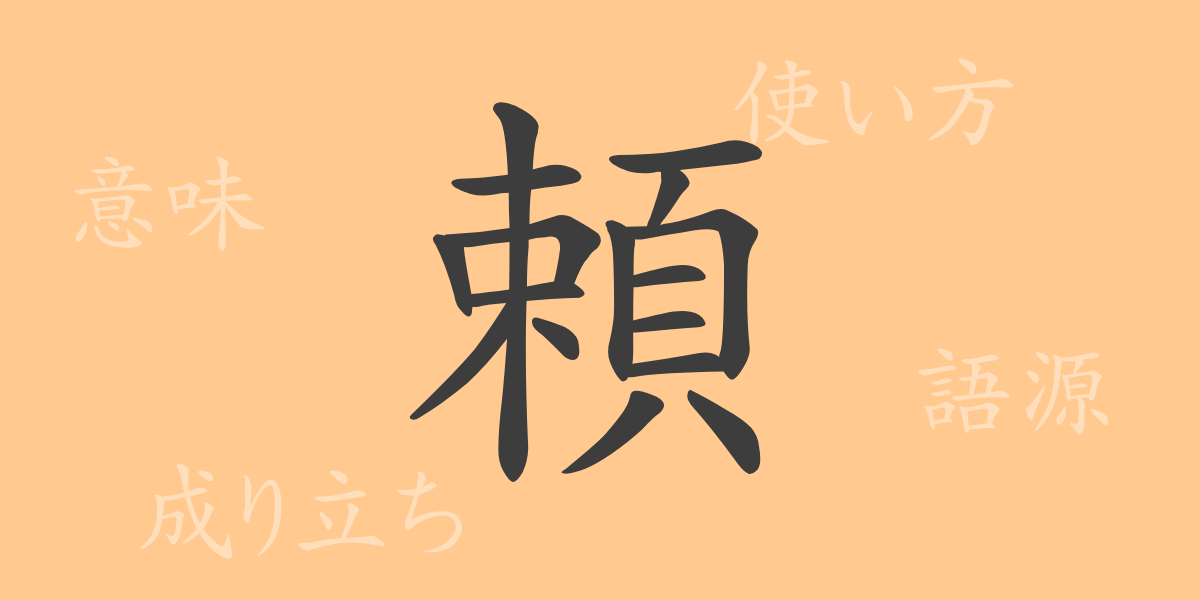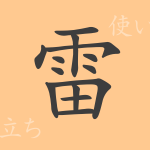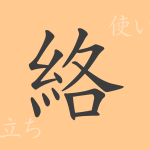The beauty of Japanese written language lies in its complexity and richness of expression. One of the commonly used kanji (Chinese characters), 「頼」(らい, rai), deeply ingrained in Japanese life and culture, encapsulates a profound concept. This article delves into the charm of 「頼」 from its etymology to its modern usage, including idioms and proverbs that feature it.
Etymology of 「頼」(らい, rai)
The kanji 「頼」(らい, rai) was formed in ancient China and can also be written as 「賴」(らい, rai). The character consists of the radical 「貝」(かい, kai), symbolizing a shell, and 「頚」(けい, kei), meaning head. Originally, it depicted the image of carrying treasures on one’s head. Over time, it evolved to signify trust and reliance, and this meaning was passed down to Japan.
Meaning and Usage of 「頼」(らい, rai)
The kanji 「頼」(らい, rai) means “to request” or “to rely on” and represents acts of depending on others or asking for something. In Japanese, it is used in everyday expressions like 「頼む」(たのむ, tanomu) and 「頼もしい」(たのもしい, tanomoshii). It also carries nuances of trust and confidence, playing a crucial role in interpersonal relationships.
Reading, Stroke Count, and Radical of 「頼」(らい, rai)
The kanji 「頼」(らい, rai) epitomizes the complexity of the Japanese language in its readings and structure.
- Readings: On’yomi (音読み) is 「ライ」(らい, rai), and Kun’yomi (訓読み) includes 「たの.む」(たのむ, tanomu), 「たの.もしい」(たのもしい, tanomoshii), and 「たよ.る」(たよる, tayoru)
- Stroke Count: 16 strokes in total
- Radical: The radical of 「頼」(らい, rai) is 「頚」(けい, kei), but it is often classified under 「りっしんべん」(りっしんべん, risshinben) in dictionaries
Idioms, Proverbs, and Phrases Using 「頼」(らい, rai)
There are numerous idioms and expressions that include 「頼」(らい, rai), each reflecting the Japanese spirit and behavioral patterns.
- 頼りにする (たよりにする, tayori ni suru) – To rely on or trust someone
- 頼もしい (たのもしい, tanomoshii) – Reliable or reassuring
- 頼みの綱 (たのみのつな, tanomi no tsuna) – The last hope or resort
- 頼み込む (たのみこむ, tanomikomu) – To plead earnestly
- 無理を頼む (むりをたのむ, muri o tanomu) – To make an unreasonable request
These expressions are frequently used in daily conversations and literary works, showcasing the richness of Japanese language.
Conclusion on 「頼」(らい, rai)
The kanji 「頼」(らい, rai) symbolizes concepts of trust and reliance, which are fundamental to human relationships. From its origin to modern usage and the abundant idioms and proverbs, one can appreciate the depth of the Japanese language. Understanding the meaning of 「頼」(らい, rai) is essential for building better relationships in daily communication.

























